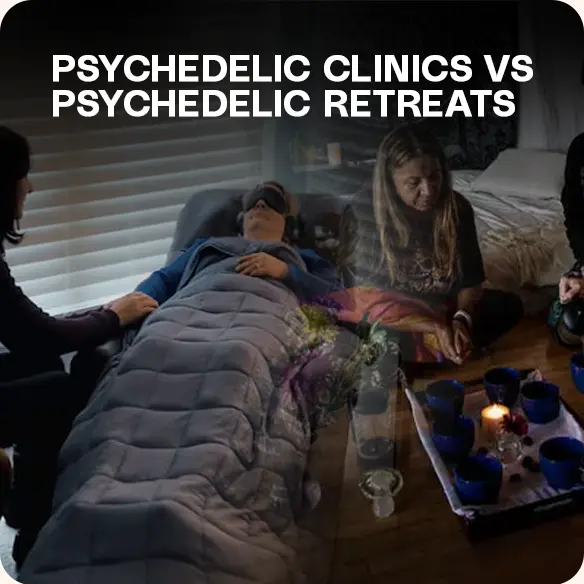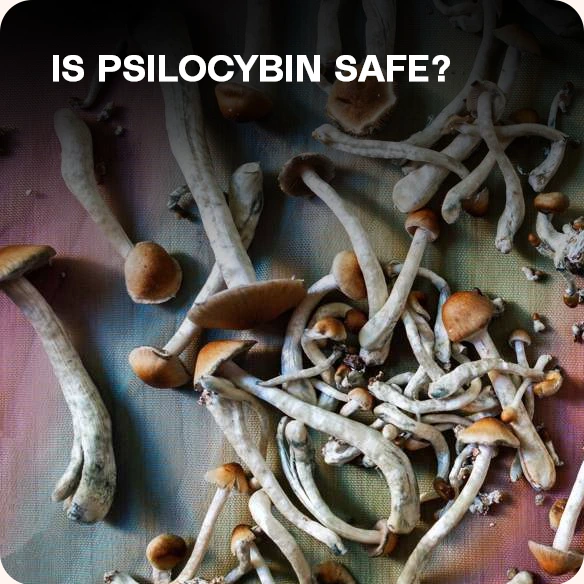Nootropic mushrooms are non-psychedelic fungi that enhance brain function, including memory, focus, mental clarity, and mood.
Popular mushrooms like Lion’s Mane, Turkey Tail, and Reishi are known to promote neurogenesis and cognitive performance, making them valuable natural nootropics.
This guide explains how nootropic and magic mushrooms work, their benefits, side effects, and how to take them safely.
We will also look at the differences to help you choose between nootropic and magic mushrooms.
Key Takeaways:
- Nootropic mushrooms can improve focus and mental clarity and support long-term brain health.
- Magic mushrooms help with emotional healing, self-awareness, and reducing stress and anxiety.
- Both types of mushrooms have different benefits, so it’s essential to choose between the two based on your specific goals, whether it’s boosting mental performance or working through emotional challenges.
What Are Nootropic Mushrooms?
Nootropic mushrooms are fungi that improve cognitive functions like memory, focus, and mental clarity. Species such as Lion’s Mane, Cordyceps, and Reishi contain bioactive compounds that support neurogenesis and brain plasticity.
They are called “nootropic” because they support focus, memory, and mental clarity. These mushrooms, like Lion’s Mane, Cordyceps, and Reishi, have been used for a long time to help with brain health and reduce stress.
Since eating enough of these mushrooms in everyday meals is hard, people often take them as supplements, like gummies or capsules, to get the benefits more efficiently.
For example, our focus-enhancing microdosing capsules are designed to support mental clarity and productivity in a convenient form.
What Are the 5 Most Common Nootropic Mushrooms?
The most common nootropic mushrooms are:
- Lion’s Mane
- Cordyceps
- Reishi
- Chaga
- Shiitake
How Do Nootropic Mushrooms Work?
Nootropic mushrooms support brain function by promoting communication between brain cells and helping the brain respond better to stress.
Some, like Lion’s Mane, contain compounds that stimulate the growth of new neurons, which is essential for memory and focus. Others, like Reishi, are known to help regulate the brain’s stress response.
These mushrooms may also increase brain-derived neurotrophic factor (BDNF), which is essential for brain plasticity—the ability to learn and adapt.
This process helps improve cognitive functions like learning and memory while supporting emotional stability.
By adding nootropic mushrooms into your daily routine, you may support brain health, improve focus, and enhance your ability to handle stress, all at the same time.
What Are Their Benefits?
Nootropic mushrooms offer many benefits, including better memory, focus, and mood support. Here are some of the benefits:
- Memory and Focus: Lion’s Mane is known for helping the brain grow and maintain nerve cells, improving memory and focus.
- Mood Support: Nootropic mushrooms like Reishi help reduce stress and anxiety by balancing the body’s response to stress.
- Cognitive Function: Cordyceps can provide a natural energy boost, helping you stay alert and focused throughout the day. If you’re looking for a microdosing product built for cognitive clarity, FOCUS capsules offer a gentle yet effective solution.
These benefits make nootropic mushrooms a valuable option for those looking to improve brain health and manage stress.
What Are Their Side Effects?
While nootropic mushrooms are generally safe, some people may experience mild side effects depending on the type of mushroom and their health.
Possible side effects include:
- Digestive issues
- Headaches
- Anxiety or feeling jittery
- Allergic reactions
It’s important to start with a small amount to see how your body reacts, as side effects can vary from person to person.
What Is the Best Way to Take Nootropic Mushrooms?
There are different ways to take nootropic mushrooms, depending on what fits your routine and preferences, but the best way to take them include:
- Powders: Easy to mix into smoothies, coffee, or oatmeal for flexible dosing.
- Capsules: Great for those who want a convenient, pre-measured option without any taste. Our pre-measured microdose for focus is ideal for users seeking mental clarity without complexity.
- Tinctures: A liquid form that can be added to drinks for a quick and effective dose.
It’s a good idea to start with a small amount and gradually increase it as you get used to how your body responds. People often take nootropic mushrooms in the morning for a mental boost or in the afternoon for better focus.
Check out our blog on the best nootropic mushrooms.
What Are Magic Mushrooms?
Magic mushrooms are mushrooms that contain psilocybin, which can change your perception and boost creativity.
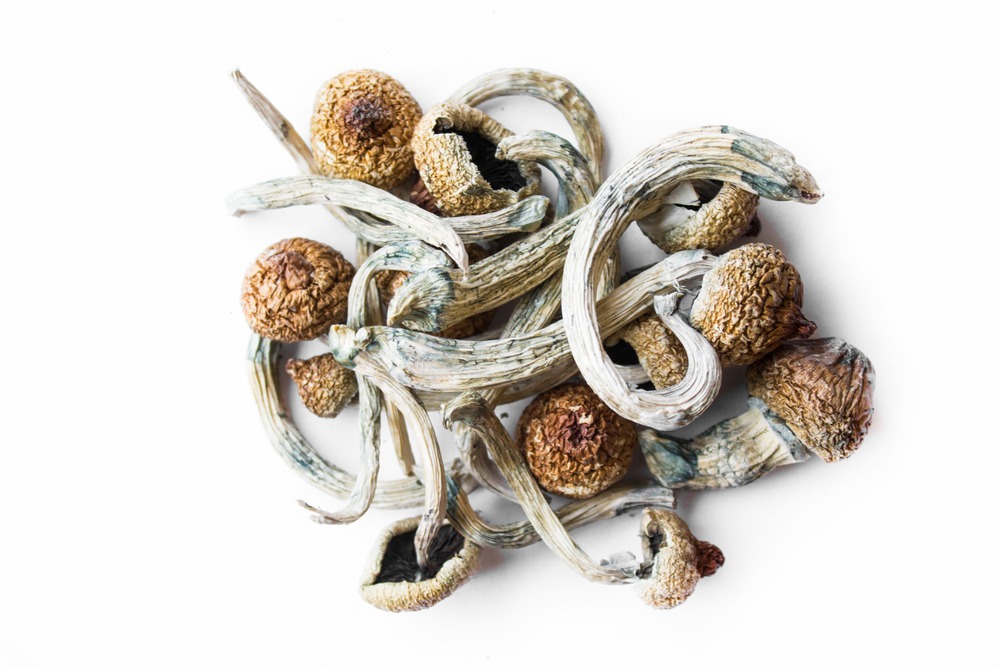
Curious how this happens? Read more in our article on how psilocybin rewires the brain.
What Are the Most Common Magic Mushrooms?
The most common magic mushrooms are:
- Golden Teacher
- B+
- Mazatapec
- Penis Envy
- Blue Meanie
For more information, check out our blog about Golden Teacher.
How Do They Work?
Magic mushrooms work through psilocybin, a compound that affects the brain by interacting with serotonin receptors, changing mood and perception.
When you take magic mushrooms, your body converts psilocybin into psilocin, which binds to serotonin receptors in the brain. This can change how you see, hear, and feel things, and sometimes bring about deep insights.
The “Effects of Psilocybin-Assisted Therapy on Major Depressive Disorder: A Randomized Clinical Trial” research by Johns Hopkins University found that psilocybin can help reduce symptoms of depression.
In the study, participants with major depressive disorder were given two doses of psilocybin in a controlled therapeutic setting.
The results showed that most participants experienced significant reductions in depressive symptoms, with many reporting improvements that lasted for weeks or even months. This study suggests that psilocybin promotes brain plasticity, which may contribute to these lasting changes in mental health.
For more information, check out our blog on how psilocybin rewires our brain.
What Are Their Benefits?
Magic mushrooms offer benefits like improved mood, anxiety relief, and support in dealing with conditions like depression and PTSD.
Psilocybin interacts with serotonin receptors in the brain, which leads to lasting changes in emotional and mental well-being.
People who have taken magic mushrooms in controlled settings report feeling happier, laughing more, and experiencing positive shifts in their overall mental state.
Some of the benefits are:
- Enhanced emotional resilience
- Increased creativity and problem-solving
- Reduced symptoms of depression
- Long-lasting improvements in anxiety
- A general sense of joy during the trip
Also, check out our blog on what is psilocybin therapy?
What Are Their Side Effects?
While magic mushrooms are safe when taken carefully, they can sometimes cause side effects that come with higher doses or for those with specific mental health issues.
Some common side effects include:
- Anxiety or paranoia
- Visual distortions
- Emotional ups and downs
- Increased heart rate
The way magic mushrooms affect you can depend on how much you take, your mental state, and where you are when you take them. People with a history of anxiety or other mental health concerns should be extra careful. To avoid bad trips, it’s a good idea to start with a low dose, be in a safe place, and have someone you trust nearby.
What Is the Best Way to Take Magic Mushrooms?
There are several ways to take magic mushrooms, and it’s important to choose a method that suits you while being mindful of dosage and safety.
Here are some of the best ways to take them:
- Dried Mushrooms: A straightforward method. You can easily measure the dose to control how much you’re taking.
- Tea: Steeping mushrooms in hot water to make tea can improve the taste and may lead to a quicker trip onset.
- Capsules: For a more discreet option, shroom capsules offer a tasteless and convenient way to take mushrooms, but be sure to check the dosage.
- Gummies: A sweet and discreet option. Our microdosing gummies are perfect for those who prefer a sweet, discreet, and measured dose — with blends crafted for clarity, calm, or creativity.
- Chocolate: Some people mix mushrooms into chocolate to make them easier and more enjoyable to consume.
- Honey: Coating dried mushrooms in honey can mask their taste, make them easier to take, and help preserve them for longer periods.
- Lemon Tekking: This involves soaking mushrooms in lemon juice to speed up the onset and potentially intensify the trip.
Whatever method you choose, start with a low dose, stay in a safe environment, and have a trusted friend nearby, especially if it’s your first time. This will help ensure a more enjoyable and safe trip.
For best practices in safe and effective protocols, explore our beginner-friendly guide on how to microdose effectively.
What Are the Differences Between Nootropic Mushrooms and Magic Mushrooms?
Nootropic mushrooms, like Lion’s Mane and Cordyceps, help with focus, memory, and overall brain function.
Magic mushrooms are used for more than just feeling good — they can help people feel more emotional, think more creatively, lower stress and anxiety, and lift their mood for a longer time.
| Mushroom Type | Nootropic | Psychedelic | Medicinal |
|---|---|---|---|
| Lion’s Mane | ✅ | ❌ | ✅ |
| Turkey Tail | ✅ | ❌ | ✅ |
| Reishi | ✅ | ❌ | ✅ |
| Psilocybe Cubensis (Magic Mushrooms) | ❌ | ✅ | Sometimes |
The main difference is that nootropic mushrooms boost brain performance, while magic mushrooms offer a mix of emotional and mental benefits, including a fun and positive trip.
Nootropic mushrooms contain compounds that support brain health, while magic mushrooms contain psilocybin, which affects mood and perception.
In nootropic mushrooms, you’ll find compounds like ergothioneine, an antioxidant that helps protect brain cells, and hericenones, which may support the growth of new nerve cells. These compounds are found in mushrooms like Reishi, Tremella, and Shiitake, helping improve memory and focus.
Types of compounds in nootropic mushrooms:
- Ergothioneine – an antioxidant
- Hericenones – promote nerve growth
In magic mushrooms, the active compound is psilocybin, which interacts with serotonin receptors in the brain. This can change mood and perception, and many people report that it helps with anxiety and depression.
Key effects of psilocybin:
- Influences serotonin receptors
- It may help with mood disorders
These differences in chemical composition show how nootropic mushrooms support brain function, while magic mushrooms are more focused on mood and emotional well-being.
What are the Effects on the Brain ?
Nootropic mushrooms help improve brain function, while magic mushrooms cause shifts in perception and mood due to psilocybin.
Nootropic mushrooms like Lion’s Mane are known for supporting brain health by promoting the growth of nerve cells. This helps with memory, focus, and problem-solving, making these mushrooms a go-to for people looking to sharpen their cognitive abilities. They can make your mind feel clearer and more focused.
Magic mushrooms, with psilocybin, interact with serotonin receptors, leading to changes in how you see and feel things. They can boost mood and increase emotional awareness, often leading to deeper insights and personal growth.
Both types of mushrooms affect the brain in different ways, helping with either cognitive improvement or emotional and perceptual shifts.
Which One Should You Choose?
Choosing between nootropic mushrooms and magic mushrooms depends on your personal goals. Nootropic mushrooms are great if you’re looking to improve focus, memory, or mental clarity. If you’re more interested in self-discovery or having a deep, introspective experience, magic mushrooms might be a better fit.
Here’s how to decide:
- Personal Goals: Are you aiming to sharpen your mind, or are you looking for a more profound trip that might bring emotional insights?
- Benefits: Nootropic mushrooms like Lion’s Mane help with brain health and focus, while magic mushrooms can offer emotional healing and deeper self-reflection.
- Consider Risks: Both have potential side effects, so it’s important to do your research and make sure you know what you’re getting into.
Ultimately, the choice depends on what you want to achieve and how comfortable you feel with the potential outcomes of each type.
Can You Take Nootropic and Magic Mushrooms Together?
Yes, you can take nootropic mushrooms and magic mushrooms together. This combination can offer both cognitive support and the enjoyable experience of magic mushrooms. Nootropic mushrooms like Lion’s Mane can help sharpen focus and improve memory, while magic mushrooms like Golden Teacher can bring relaxation and emotional balance.
For example, Our CALM microdosing capsules offer a perfectly balanced blend of Golden Teacher and Lion’s Mane, designed for gentle clarity, emotional balance, and creative support
It’s designed to give you peace, focus, creativity, and mood elevation without feeling overwhelmed. You can enjoy the benefits of both types of mushrooms, making this an excellent option for those looking to improve mental clarity.
This combination is perfect for people seeking stress relief, improved mood, and enhanced creativity, without worrying about intense psychedelic trips. To learn more about how to safely combine functional mushrooms, explore our full guide on mushroom stacking for mental performance
Conclusion
Nootropic mushrooms, like Lion’s Mane and Cordyceps, are great for improving focus and memory, while magic mushrooms, like Golden Teacher, can help with emotional healing, anxiety, and depression.
It’s important to understand the differences so you can choose what’s right for you. Whether you want to boost brain health or support emotional well-being, these mushrooms can really help.
Find out more in our blog about microdosing vs macrodosing psilocybin.
Frequently Asked Questions
What are nootropic mushrooms?
Nootropic mushrooms are non-psychedelic mushrooms that improve brain functions such as focus, memory, and mental clarity.
Are mushrooms nootropics?
Not all mushrooms are nootropics. Only certain species, like Lion’s Mane, Reishi, and Turkey Tail, are considered nootropic mushrooms because they support brain health and cognitive function without causing psychedelic effects.
Are nootropic mushrooms good for sleep?
Yes, mushrooms like Reishi promote relaxation and can help improve sleep quality.
If sleep is your focus, explore how microdosing and sleep quality are connected, including ideal protocols and timing tips.
Can magic mushrooms improve creativity?
Yes, magic mushrooms often enhance creativity and promote new ways of thinking.
For a full breakdown of how microdosing supports mood and creative thinking, see our guide on the benefits of microdosing psilocybin.
How do you take nootropic mushrooms?
You can take them as capsules, gummies, powders, and teas or mix them into meals.
Can magic mushrooms create a sense of connection?
Yes, many people report feeling more connected to themselves and others after a trip.
Can nootropic mushrooms help with mental clarity?
Yes, they help clear brain fog and improve overall mental sharpness.
Also curious about how timing affects results? Learn about microdosing at night vs daytime and how it impacts mental clarity and focus
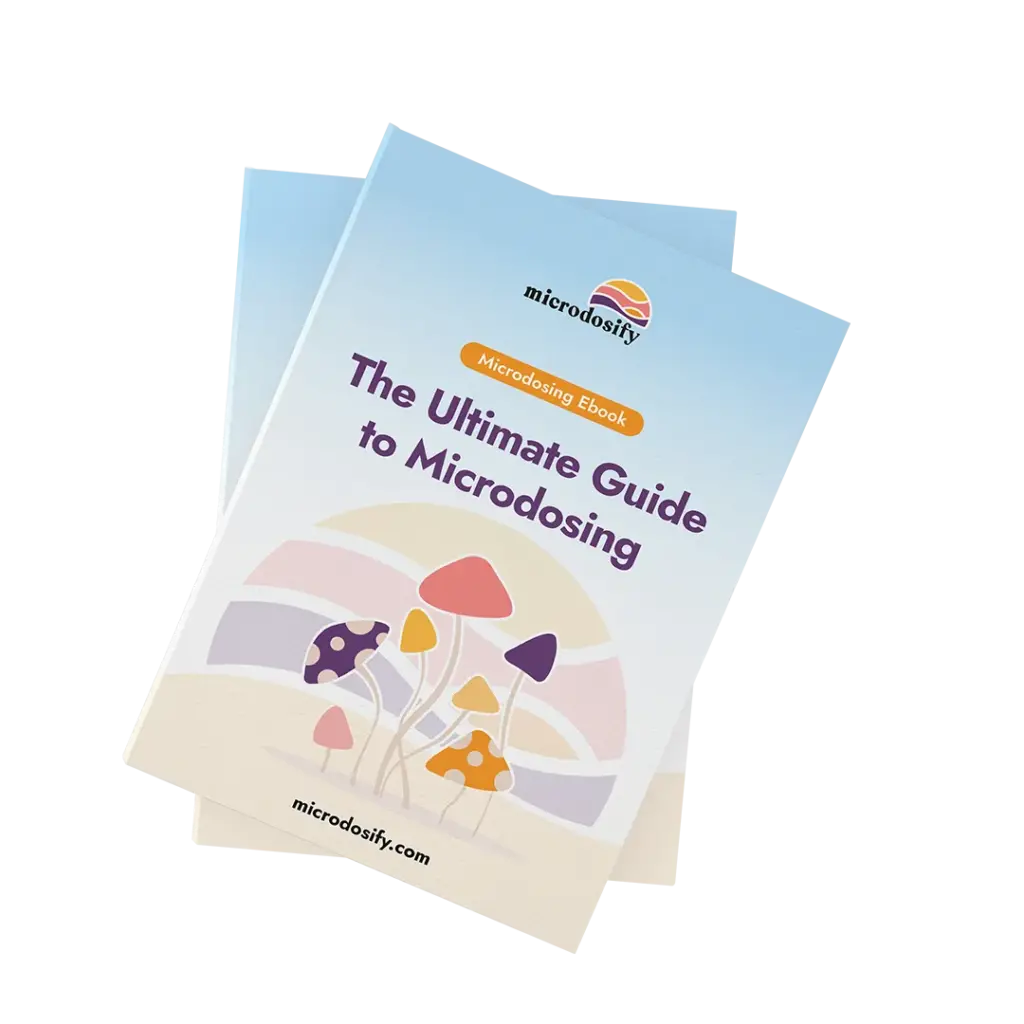

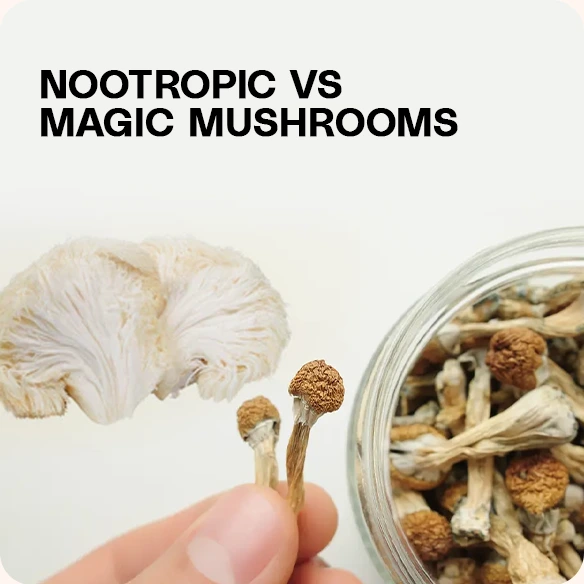
 12 min read
12 min read